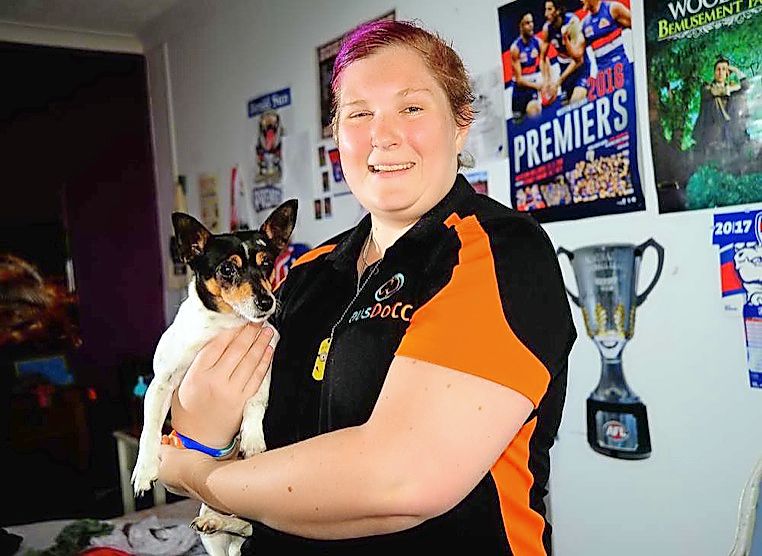Seaholme’s Abbie Kinniburgh is helping organise next month’s national conference for people with disorders of the corpus callosum, such as herself. She speaks with Goya Dmytryshchak.
What’s your connection to Hobsons Bay?
I have lived in Hobsons Bay for nearly seven years now. I live in Seaholme in an old shop. I live with my mum who saw the area and the shop, fell in love with the place and the area and bought it very spontaneously, all over one weekend.
What do you like about Seaholme?
It is very calm and cool with the water just a block around the corner, a walking path on the water, 10 minutes from the shops and a small train station across the road running to and from the shops and towards the city. Close enough for good access to local and wider community, but far enough away from the “tourists” and visitors increasingly discovering Altona beach in the heat and holidays. Seaholme is a hidden gem to live in … a small country-like community, supporting and providing for local needs, people and causes.
What would you change?
The only thing I can think to change in Altona is to have more small local stores and businesses to be able to support local needs, people and causes. I think a small community should have mainly small businesses supporting small causes.
What’s your favourite cafe?
My favourite local cafe is up-and-coming Bezirk. It is the only one and was much needed. My favourite cafe in Altona – Hangar1one2 Cafe. It took the plunge, opening up the quieter end of Pier Street. It’s still there, got great food and has breakfast till 3pm. I hope it stays.
Can you tell us a bit about your condition and the challenges?
At age two, my parents were told I would never be able to read or write. Now I am studying at uni. I was born with partial agenesis of the corpus callosum. Basically, the bridge connecting the two hemispheres of the brain has holes in it. Disorders of the corpus callosum (DCC) are diagnosed through brain MRI or in-utero. It varies in severity from being peg fed and unable to walk or talk to walking, talking, and being visibly “able”. I appear to have nothing wrong, but I have high anxiety, slow processing and am unable to cope with multiple things at once. I also have many other health issues that cannot be seen. DCC needs much more recognition and support in Australia.
Tell me about next month’s national conference in Melbourne organised by Australian organisation for Disorders of the Corpus Callosum.
It will provide information and connection for people in society and people experiencing a DCC. The conference will include sessions to discuss, workshop and hear about therapies, as well as international speakers and the latest research related to DCC.
For more information, visit ausdocc.org.au








